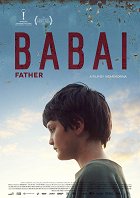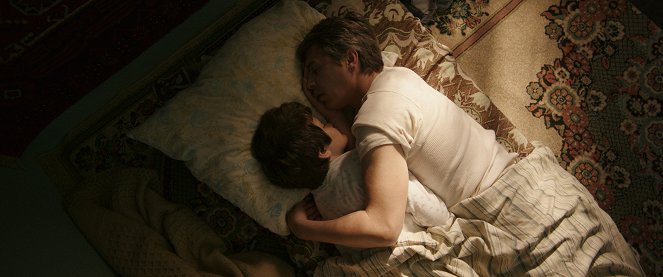Réalisation:
Visar MorinaScénario:
Visar MorinaPhotographie:
Matteo CoccoMusique:
Benedikt SchieferRésumés(1)
The film, intriguing for its sober expression and focused understanding of the topic, explores ten-year-old Nori's inner and outer worlds. He encounters nothing but turmoil, and although he lives in a large patriarchal family, he compensates for his emotional distress by developing a strong fixation on his father. Gezim, however, is a weak-willed outsider who uses his son to earn a meager living selling cigarettes on the street. He never wants to talk about why his wife left him, and one day he himself decides to abandon the boy and his former life for a naïve vision of Germany as a change for the better. Desperate Nori's secret journey to find his father occupies a large part of the story, during which he gets knocked down hard but learns to snap back with resilience. In the end he is more grown-up than Gezim ever was, but this statement suggests a bitterness over a childhood lost among people whose sole forms of communication are harsh words, hands raised in aggression, injustice, and betrayal. (Karlovy Vary International Film Festival)
(plus)Critiques (2)
50th KVIFF – I haven’t been to a festival before and so I expected the main contest panel to be full of only the best of the best. That’s how I perceived it and I probably shouldn’t have. Anyways, Babai seemed like a really interesting movie that tells the story of immigrants, this time from Macedonia. The crowd of delegates seemed charming and so I got even more excited. And if it weren’t for the second half of the movie, I’d probably go into a limbo, just like few of the people around me, as I noticed. The first half of the movie was awfully confusing, confidently introducing some rules in the middle of a small Macedonian town, but I didn’t really understand these rules. The second half of the movie was much clearer. It introduced a giant looser and it didn’t really make the movie any more charming. There wasn’t anyone to root for and the ten-year-old Nori has suffered through his life mostly out of desperation, a fact that was proved in the ending itself, which didn’t give me anything at all. A shame.
()
It does have a strong theme and the potential for special dynamics between father / son, but unfortunately it is immediately brought down by diligent but unmanaged directing. Each shot is subjectively longer by half, while the film feels confused and figurative. If the characters sometimes did not balance what happened, some of the moments would fade out into nothingness. The quest to create an unbiased picture of immigration is grounded by a slightly bizarre conclusion. It all feels like faintly composed memories and moments that desperately lack integrity and inner strength. The introductory quote from Adorno is true, but it is also true that returns to one's own childhood are of value only if the creator finds in them more than just the magic of portraying one's own memories. And Father may be trying to achieve the Dardenian kinetics of a stubborn central character, but most of the time it stiffens helplessly on the spot, moreover without the ability to observe impressively. Most of the time, it only describes. Festival B league.
()

